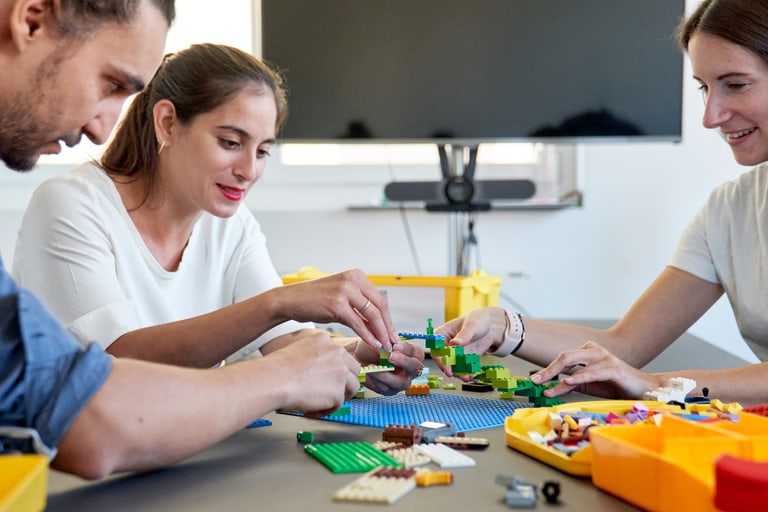When we think about agency-client relationships, we tend to imagine a relationship like any other. In the best cases, it is long and happy, but sometimes it can mean separating not long after a promising beginning. This does happen on occasion. However, I think that client relationships should allow giving clients the tools and methods that enable them to manage without our support in time.
Putting an end to relationships based on daily dependence
Many of our successful collaborations had time-limited involvement planned, with the goal of going parted ways without flying dishes once our client can act independently. We create an online or mobile platform and its operational management is moved in-house. This might appear to be a poor financial decision for an agency, but experience has shown, that in the long run, it’s the only way to create a partnership based on trust. Effectively, after a certain amount of time, our client no longer needs our help on a daily basis, as the foundations are in place and an in-house team is more efficient (financially and for speed of business). We don't hold our clients as prisoners of tools that require us to implement changes. That's why we focus on open-source options.
Instead, help and support for our clients when there is a real need
Instead, our clients tend to return to us when they have a good reason to do so. For example, they might be going around in circles or have identified a gap that needs filling – whether it’s redesigning a tool, adding additional features, or developing a new website or an app. Our help can also involve providing temporary support to manage projects with a deadline that does not justify bringing on new staff.
By providing our broad range of expertise to complement or reinforce your internal resources or our outside view of things, we create added value for our clients. At the same time, we know our clients' needs well enough not to start from scratch every time.
The examples of Urban Connect and OneDoc
A few years ago, we had the pleasure of working with Urban Connect, a company providing businesses with a fleet of electric bicycles. The fleet was managed by a mobile application whose prototype was developed by a freelancer. We took up the baton, and developed a more scalable and, long-term sustainable application, and provided back-office and API support. We had the common goal of achieving gradual autonomy on the client's side. We also helped them with the process of recruiting mobile developers. After a few years of working together, the management of the application was moved in-house at Urban Connect.
OneDoc is an online and mobile application that makes managing appointment booking easier for both patients and doctors. The company approached us to help develop a mobile app in addition to the already existing online platform.. Our teams provided an initial functional version of the app to the OneDoc development team so that they could manage it going forward. We supported OneDoc with implementing new features and our UX, design and mobile development expertise (which they do not have internally or only have on a small scale).
In-house or not? It depends on the role of digitalisation in the company
This does not mean that moving things in-house is always the best solution for a client. If digitisation is part of your company's core business, strengthening internal resources and reducing outsourcing is worthwhile.
This was absolutely the case for Urban Connect and OneDoc – the mobile application forms the heart of the system and is the user’s first point of contact. Therefore, the insourcing process, with a gradual increase in autonomy, made sense for both companies and us. These two companies were both start-ups whose growth we were delighted to support. The birds have now flown the nest to soar on their own. But does it work with otters?
QoQa: learning agility with us
In French-speaking Switzerland, everybody knows the online sales platform QoQa and its community of thousands of "otters", as they are called. A start-up that has become a key player in online sales, often making waves with unusual sales campaigns and/or prices that defy the competition.
QoQa gave us a call a few years ago when they were about to redo their websites and mobile apps. They needed a partner who could offer them both technological and methodological expertise – in other words, the collaboration involved assisting them with agile tools and methods. Rather than starting with grand theories, we quickly moved onto the practical side. We hosted three QoQa employees in our offices for six months so that they could see agility in action on an everyday basis and we could coach them on their new technological platform. A year later, we did the same for their mobile application. Eventually, we helped them recruit one and then two mobile developers so they would only need to call on us for support.
However, our influence did not end there. QoQa has gone so far as to adopt a holocratic way of working, which we pioneered in Switzerland. I'm very proud of this decision - it's a bit like telling one of your best friends how you've started exercising again thanks to a certain technique, and then they follow the same path for the benefit of their own health.

